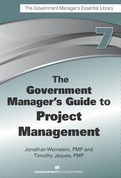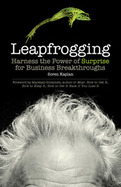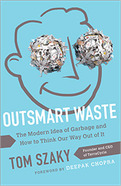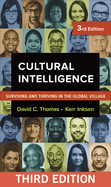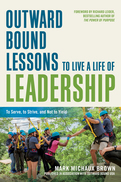The heart of the business analyst's role is to drive various constituencies through processes to achieve consensus on the needs of the business. Successfully facilitating meetings — whether a one-on-one interview or a larger presentation — is essential to business analysis. The Art and Power of Facilitation: Running Powerful Meetings provides powerful tools that the business analyst can use to negotiate through the myriad of meetings, informal work sessions, and formal workshops that are necessary to develop business requirements.
2012
In his trailblazing debut, Kaplan gives business leaders the tools to do exactly what they're taught to avoid: embrace surprise-the new key to business innovation.
-
Challenges the idea that business success requires leaders to create predictability and maximize control
-
Demonstrates how embracing, cultivating, and harnessing uncertainty and unexpected events can inspire breakthroughs in all areas of business
- Filled with real-world examples of what companies such as Intuit, Gatorade, Four Seasons, and Colgate have achieved through the power of surprise
- Winner of the Bronze Axiom award in the category of leadership
How did Gatorade revitalize itself in the wake of Red Bull and Starbucks? How did Etsy come to be? What makes one company or brand thrive while others languish in today's fast-paced, ever-changing marketplace? There's no doubt hard work is involved, but Soren Kaplan shows you can't do it by simply creating a big vision and implementing a set plan. In his trailblazing debut, Kaplan gives business leaders the tools to do exactly what they're taught to avoid: embrace surprise -- the new key to business innovation.
For Kaplan, breakthrough success is all about "leapfrogging." Instead of fighting against uncertainty, Kaplan reveals how to use it to break down limiting mindsets and barriers to change the game. Using his LEAPS process (Listen, Explore, Act, Persist, and Seize), leaders learn to recognize and harness surprising experiences and events as a way to create solutions that leap beyond the current expectations of customers, partners, employees, and the competition. By highlighting specific ways to transform both good and bad surprises into unique opportunities, Kaplan encourages leaders to compete by embracing counterintuitive ideas, managing paradoxes, and even welcoming failure.
Now is the time to challenge assumptions and reinvent what is possible. All organizations -- from large corporations to those just starting out -- have the potential to take a significant leap forward by turning today's increasingly uncertain environment into a tool for unprecedented success. Kaplan's Leapfrogging is the new handbook for the modern leader.
2013
Why DOES garbage exist in human society? Why has it become a problem only in the last century? And most importantly, how can we eliminate it-outsmart the very idea of garbage?
- Changes everything you ever thought you knew about garbage-and is guaranteed to change how you buy, consume, and dispose of things
- Explains the origins of the modern garbage crisis and what each of us can do to solve it
- Written by a dynamic young entrepreneur whose innovative, award-winning company has enlisted 35 million people to help outsmart waste in 22 countries
Garbage has become a huge problem. Ever-expanding hazardous landfills, toxic waste dumps, ocean dead zones, endangered wildlife-it's an environmental nightmare.
But garbage is a recent problem-for most of human history it was a minor annoyance-so we should be able to solve it. And garbage doesn't even exist in nature, where the output of one organism is the input of another. So why does garbage exist in human society? Why has it become a problem only in the last century? And most importantly, how can we eliminate it-outsmart the very idea of garbage?
Eco-entrepreneur Tom Szaky says that to outsmart waste, first we have to understand it, then change how we create it, and finally rethink what we do with it. He traces the roots of our current garbage crisis to 20th-century social shifts and technological advances that resulted in historic changes in consuming habits-both the amount of garbage created and its longevity increased dramatically. We are now producing five billion tons of waste a year, and our only ways of dealing with it are crude and even dangerous: burying it or burning it. We can do better!
Every time we make a purchase, we are essentially voting for the kind of world we want to live in. Szaky shows that by becoming acutely aware of the deeper implications of why we buy, what we buy, when we buy, and what we do with what we've bought, we can cast our vote for a waste-free world. And through innovative recycling and creative "upcycling" (creating new products from discarded objects), we can transform the waste we can't avoid creating from useless waste into a useful resource-as it is in nature.
We do not have to turn the Earth into a cosmic trash can. We as individuals have the power to turn this situation around. And, as Szaky demonstrates, there is a use for every kind of garbage-cigarette butts, toothbrushes, pens, packaging, you name it. After reading this mind-expanding book, you will never think of garbage the same way again.
In today's global economy, the ability to interact effectively across cultures is a fundamental job requirement for just about everyone. But it's impossible to learn the customs and traits of every single culture. David Thomas and Kerr Inkson present a universal set of techniques and people skills that will allow you to adapt quickly to, and thrive in, any cultural environment. You'll learn to discard your own culturally based assumptions and pay careful attention, in a mindful and creative way, to cues in cross-cultural situations. The authors show how to apply cultural intelligence in a series of specific situations: making decisions; communicating, negotiating, and resolving conflicts; leading and motivating others; and designing, managing, and contributing to multicultural groups and teams.
This extensively revised third edition has been updated with new stories showing cultural intelligence in action. Thomas and Inkson have broadened the focus beyond business to include organizations of all kinds—nonprofits, governments, educational institutions, and more. And they include a reliable and valid measure of cultural intelligence based on a decade of research by an international team of scholars.
For nearly six decades Outward Bound USA's education programs have shaped the lives of tens of thousands of participants. Strangers are put in an unfamiliar and unpredictable setting, where to succeed they must develop a sense of teamwork, resilience, self-confidence, and a focus on the greater good. But, Mark Brown asks, isn't the modern world just as unpredictable and challenging as any mountain or desert? He shows how the same principles that bind people together in the natural world work just as well in cities, companies, and communities.
This book explores the concept of Expeditionary Leadership through the stories of people such as third-generation business steward Laura Kohler, the Home Depot cofounder Arthur Blank, and former United States Senator Mark Udall, whose lives were touched by Outward Bound and who then went on to make a positive difference in the world. They show how each of us can, in our own way, use the Outward Bound philosophy to bravely face the wild unknowns in our daily lives.
From training the first Peace Corps volunteers to partnering with thousands of educational institutions and corporations, Outward Bound has helped build the self-confidence and character of participants who have gone on to live richer, more fulfilling, and successful lives. Outward Bound internationally operates in thirty-three countries and impacts nearly a quarter of a million people annually.


